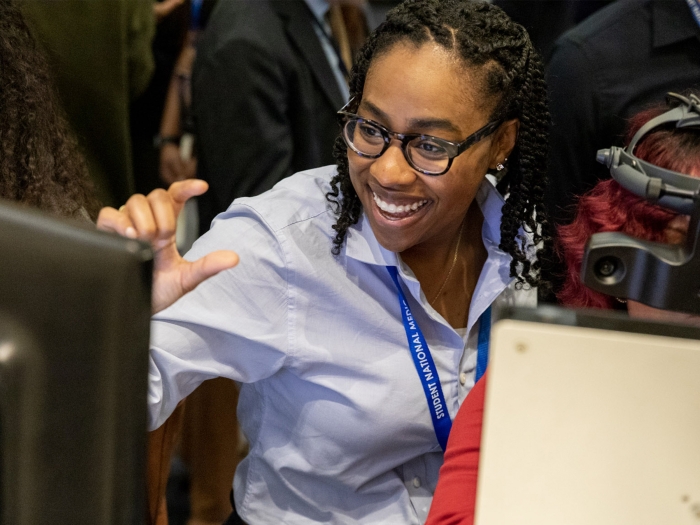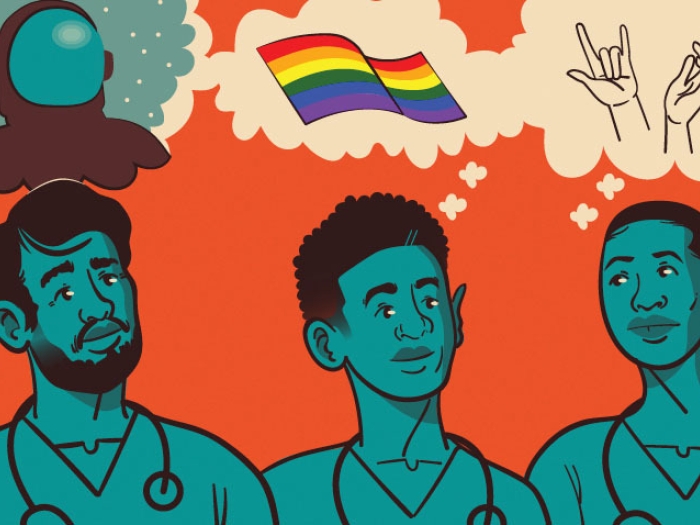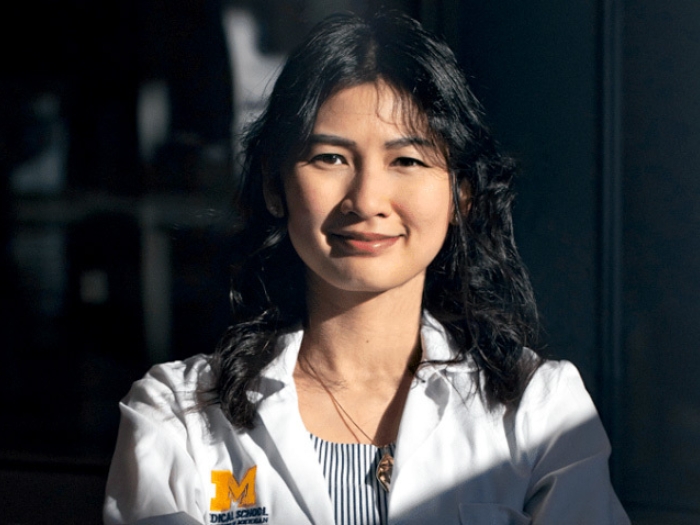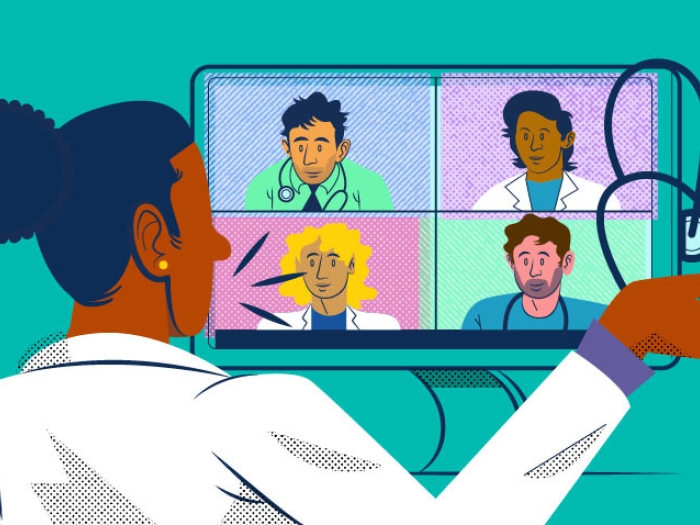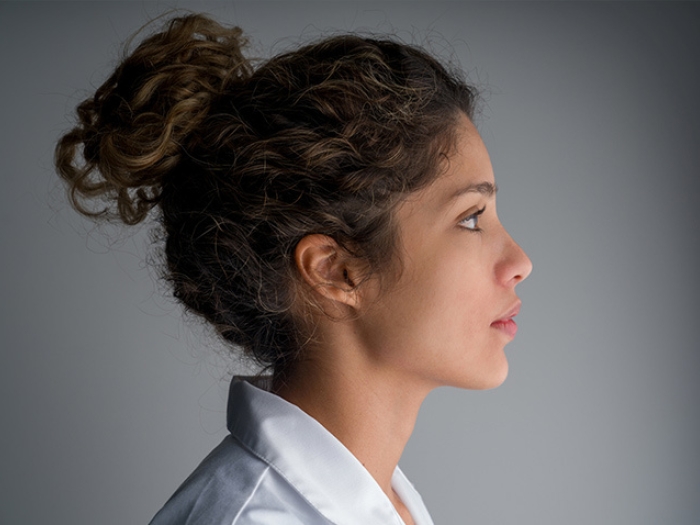The conversation provides insight into what admissions is looking for in prospective students.
10:18 AM
Author |
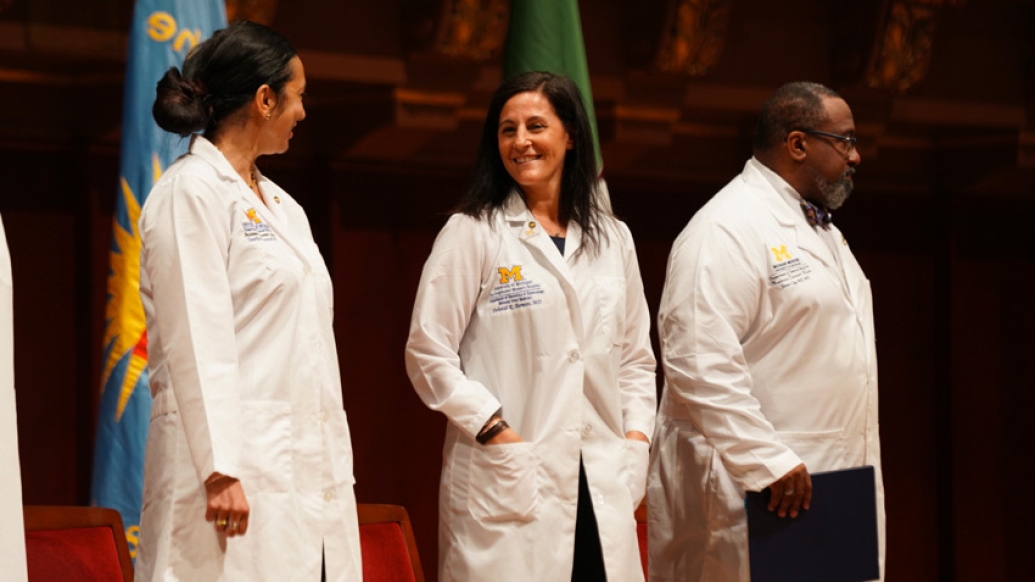
As another competitive application cycle for medical students gets underway across the United States, hopeful candidates may wonder what's needed to get noticed at a highly regarded institution like the University of Michigan.
Luckily, newly named interim assistant dean for Admissions, Deborah R. Berman, M.D., recently spoke with director of Admissions Carol Teener, on that very topic, discussing what it is they're looking for in their ideal applicant and more.
Highlights of their in-depth conversation are below. For the full interview, listen to the podcast player above or find it on the Michigan Medicine News Break page wherever you listen to podcasts.
Teener: We often get the question 'how would you describe your ideal Michigan applicant?'
Berman: Do you know what I would say honestly? I would say you are our ideal applicant, to whomever is listening.
We're looking to build a class, a transformative class, filled with unique, outstanding human beings. We want interesting people. We want fascinating individuals. We want individuals that we will communicate with, that future patients will communicate well with. What else? We want altruistic people, leaders, team players. People with unique potential to contribute to the field of medicine, resilient folks, adaptable, ethical people. We want communicators, connectors, dependable people.
We want people with integrity. We need people with kindness and humility. We want people who are straight out of college, and we want people who've lived a life and have had totally different careers that then directed them towards medicine. We would love people who are service-oriented. We're interested in people who are change agents for research, for social justice, for innovation, for fun. We want genuine people. We want curious individuals, resourceful people, and simply compassionate human beings. So as I said, we want you, because everybody applying has an attribute that falls into everything that I just listed.
MORE FROM THE LAB: Subscribe to our weekly newsletter
Teener: So, uniquely themselves and not necessarily everything on that list?
Berman: Exactly. You are you. You are yourself and not trying to be someone you're not.
Teener: How are you preparing for this upcoming cycle? What is your overall approach to reviewing medical student applications?
Berman: The University of Michigan Medical School has a holistic approach to how we work through each applicant's portfolio, and how we thoughtfully and intentionally look at each person's offerings, if you will.
You're not hearing us say we're putting a class together whose MCAT average is X or whose GPA average is Y. We're putting together a class of transformative individuals. We know that our applicants are human beings in the making, who are continuing to develop. They don't have it all figured out as they're applying. I would encourage people to access help and lean into resources. You're not alone.
I would encourage people to access help and lean into resources. You're not alone.Deborah R. Berman
Teener: As you know, we had virtual interviews last year, and we're going to be virtually interviewing again this coming cycle. There are many things we love about it, that it's an equitable process and we do get a really good sense of individuals. But there are concerns about how the pandemic has affected our applicants. What are your thoughts around all of this?
Berman: I think that's really important because we, like all other medical schools, pivoted because of the pandemic in how we interview. I certainly think there's been some positive facets to it; it has allowed more access for more people in a different way. I also want to note that we recognize that this has been a challenging period in our applicants lives, and all of our applicants have had unique experiences through the pandemic.
And you know what? We'd like to hear about them. We care so deeply about it that we've placed a question on our secondary application that allows applicants to address that. How has the pandemic had an effect on them, positive or negative. We want authentic responses so we can better understand how our applicants are doing.
Teener: You are quite an authentic person, Dr. Berman. And I think you and our team appreciate when people are authentic on their applications and really speak to who they are and try not to check boxes and cover all the bases, but really speak to what they're passionate about.
Berman: Absolutely. As people are filling out their applications, please speak to your own truth. This isn't a matter of writing down what you think our admissions team wants to hear. We want to connect with the true you. Everybody is bringing something different to the table. I want to hear it. Our whole executive admissions committee wants to hear it.
Teener: I know you're currently meeting one-on-one with our fourth-year medical students who are sharing their unique medical school journeys with you as they prepare to apply for residency programs. It's exciting, isn't it?
Berman: It's really exciting. I feel honored to have this opportunity to meet with our students to develop Dean's letters because I'm hearing about their arc and their progression over these years at Michigan. We have students, because they're at the University of Michigan, an institution that has everything, who've tapped into that for all of their clinical opportunities, because we're a health care system that has every sub-specialty.
At the same time, they've looked around and said, 'We have a public policy school, a public health school, a social work school, the Ross MBA, the law school, all top programs in the country, let me get a dual degree.' And so I'm talking with students who got a dual degree with their M.D. It's amazing.
I have other students who have been change agents in our anti-racism oversight committee and are changing the face of clinical grading here at Michigan to try to remove bias and make it more equitable for all. Seeing what these students have been doing, it is humbling. I am amazed and so proud of them.
Like Podcasts? Add the Michigan Medicine News Break on iTunes, Google Podcasts or anywhere you listen to podcasts.

Explore a variety of healthcare news & stories by visiting the Health Lab home page for more articles.

Department of Communication at Michigan Medicine
Want top health & research news weekly? Sign up for Health Lab’s newsletters today!
